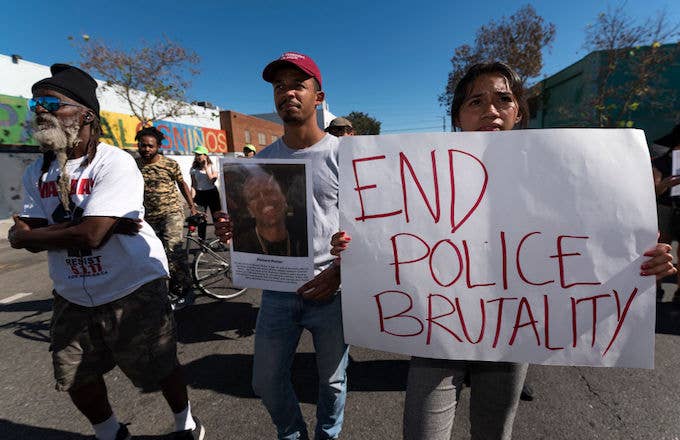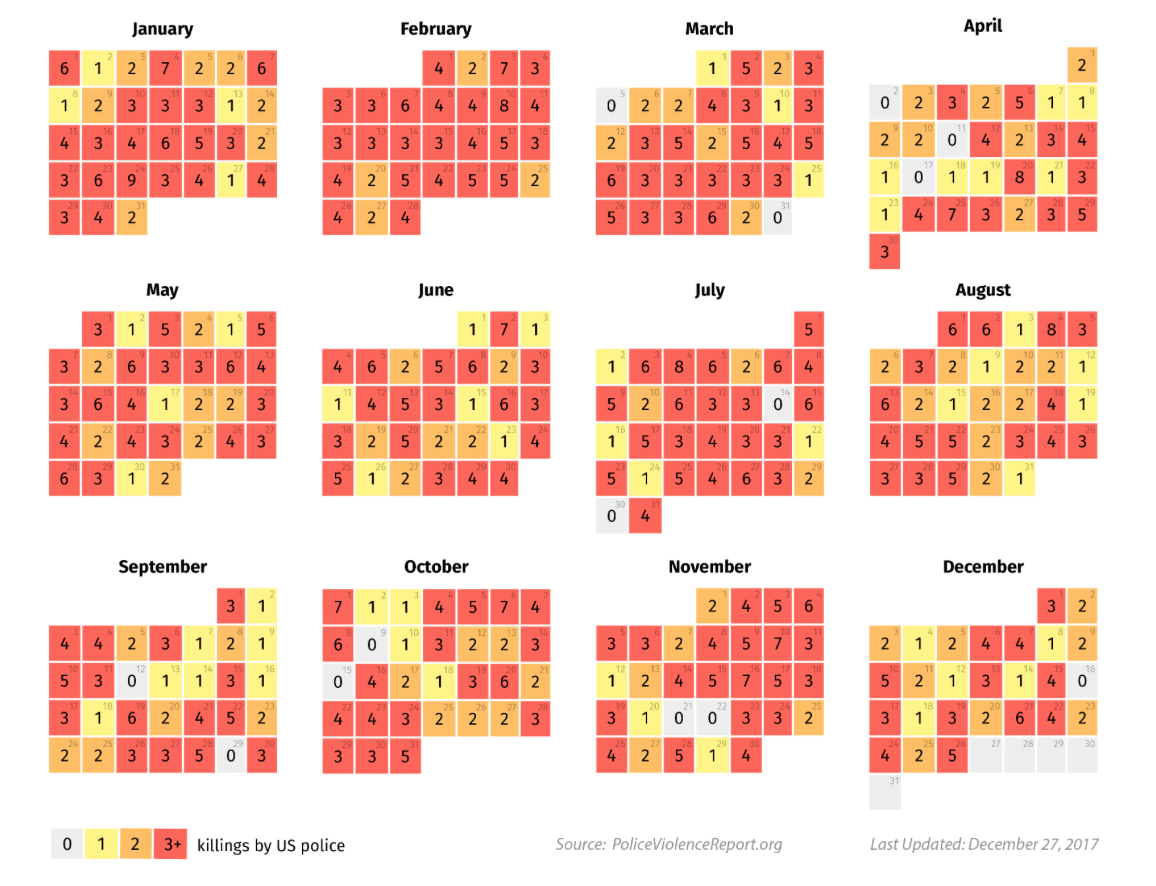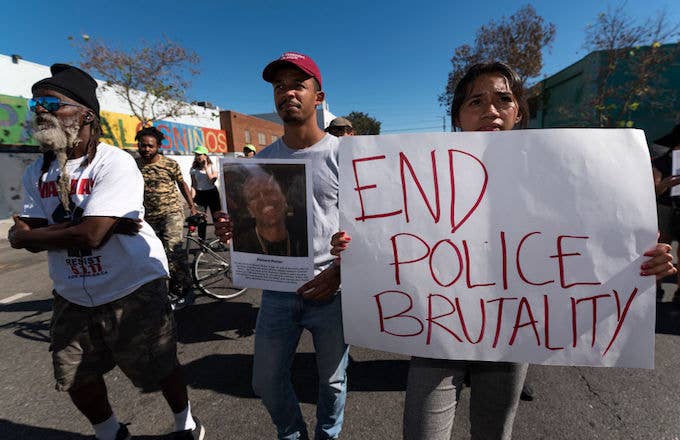
2017 counted just 14 days without someone being killed by police, according to an exhaustive new report from the research collaborative Mapping Police Violence. The report compiled data from public records, obituaries, news reports, and databases (i.e. Fatal Encounters) to create the "most comprehensive accounting of deadly police violence" this year. The analysis, Mapping Police Violence's planning team said Thursday, shows that the vast majority of these deaths could have been avoided.
Through Dec. 26, police killed 1,129 people. Only one percent of those deaths resulted in involved officers being charged with a crime. The report, published here in a fully interactive format, also delves into the specifics of each police killing and highlights the shortcomings of departments nationwide in taking simple steps that could bring these numbers down dramatically.
For example, 92 percent of the 1,129 people killed by police in 2017 were fatally shot. At least 43 involved officers had shot or killed someone prior to 2017. The majority of 2017 killings started with cops responding to reports of suspected non-violent crimes. In some cases, no crime was reported at all. Police killed 147 people in 2017 who were unarmed (the majority of whom were people of color), while 1 in 5 of those who did have a gun were not reported as threatening to use it at the time of their death.
According to the report's findings, departments spend seven times as many hours training recruits to use their weapons than they do training them in de-escalation techniques. Such techniques are vital in police reform, particularly in the aforementioned 1 in 5 cases involving armed suspects who haven't threatened to use their weapon.

The Mapping Police Violence planning team includes activists Brittany Packnett, Samuel Sinyangwe, and DeRay Mckesson. For more information on how to press your local representatives to take a stand against police brutality, and for a handy guide on a variety of potential police violence solutions, visit the expansive site accompanying the 2017 police violence report here.

